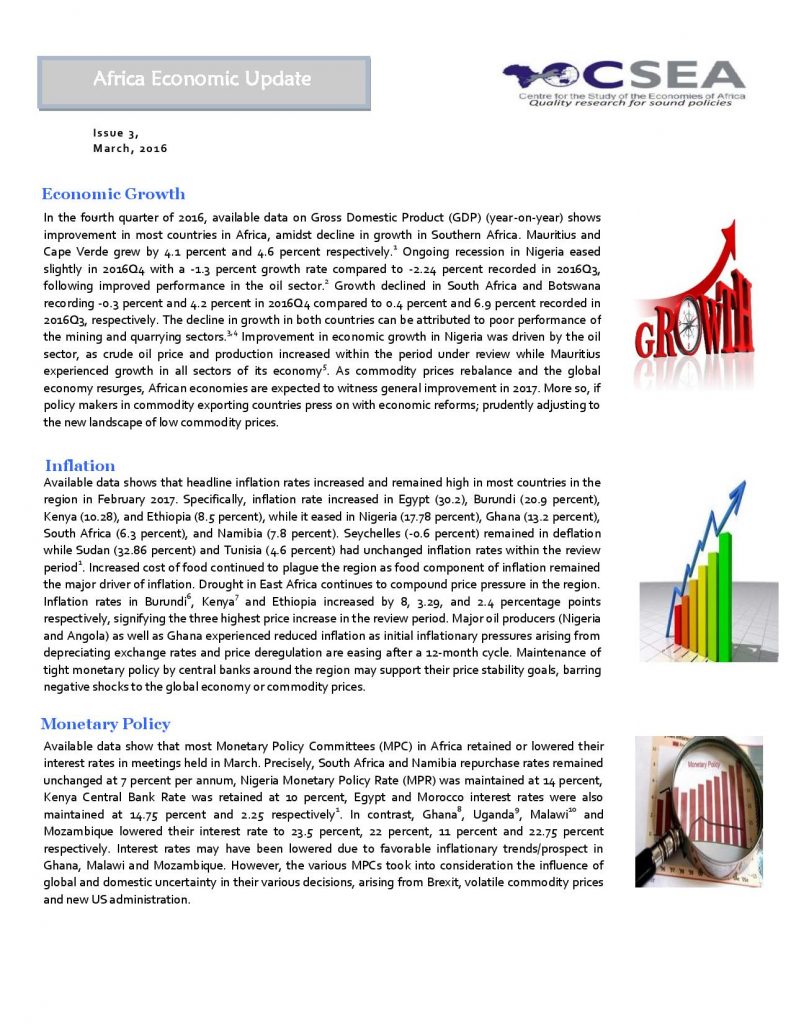Macroeconomic Report & Economic Updates

May 30, 2017
Africa Economic Update (Issue 3)
Available data shows that headline inflation rates increased and remained high in most countries in the region in February 2017. Specifically, inflation rate increased in Egypt (30.2), Burundi (20.9 percent), Kenya (10.28), and Ethiopia (8.5 percent), while it eased in Nigeria (17.78 percent), Ghana (13.2 percent), South Africa (6.3 percent), and Namibia (7.8 percent). Seychelles (-0.6 percent) remained in deflation while Sudan (32.86 percent) and Tunisia (4.6 percent) had unchanged inflation rates within the review period. Increased cost of food continued to plague the region as food component of inflation remained the major driver of inflation. Drought in East Africa continues to compound price pressure in the region. Inflation rates in Burundi6, Kenya and Ethiopia increased by 8, 3.29, and 2.4 percentage points respectively, signifying the three highest price increase in the review period
